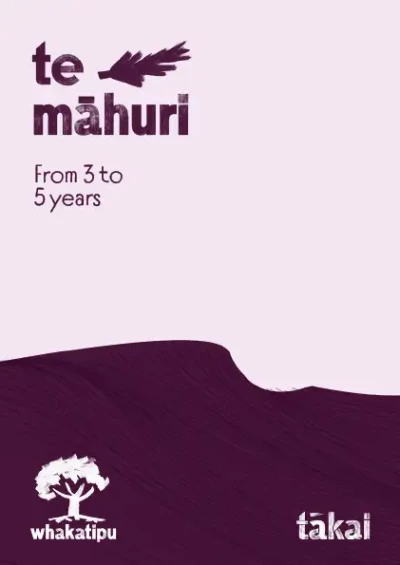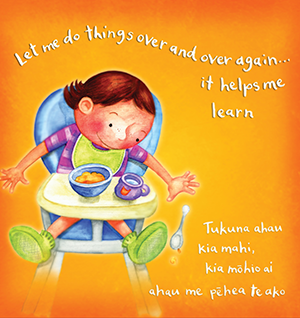
Play at home: inside
Play can be more than just fun. The home provides a great context for learning skills and strengthening relationships when we provide opportunities for tamariki to play with others and involve them in doing simple jobs around the house.
Home is the best learning place!
Look at Whakatipu booklet Te Māhuri, pages 12 and 13, where you’ll see tamariki playing with each other, playing with things from around the house and helping with simple jobs.
Ask whānau:
- What do you think they might be learning?
- Have you helped your tamaiti to do anything like this?
- What did you notice?
Affirm whānau when they:
- encourage their tamariki to get involved in any play and learning activities
- provide resources for them as they play around the house
- guide and support tamariki to share and take turns.
Whānau can encourage and support free play by:
- talking — asking open-ended questions and sharing their thoughts and ideas
- having fun with tamariki
- listening to tamariki
- guiding them and keeping them safe
- singing, dancing and sharing stories with tamariki.
Helping with simple jobs at home
Just through helping around the home, tamariki are learning skills – they are also having a relationship-strengthening experience where they can contribute alongside a more capable person.
Ask whānau:
- What have you tried doing together with your tamaiti?
- Do they like to help?
- How does that go?
- What else could you try together?
Playing with others
In Te Māhuri, check out pages 12–15 and 26–29 titled ‘Ngā taonga tākaro'. They show tamariki playing and learning on their own and with other tamariki
Between 3 and 5 years of age, a lot of learning takes place around playing co-operatively. Through play, they can learn how to take turns, share resources, wait, talk and listen and co-operate. They’ll continue to need the adults who love and care for them to support, encourage and guide them towards playing peacefully.
Ask whānau:
- Have you noticed how your tamaiti is getting on with playmates or siblings?
Ngā tohu whānau
In Te Māhuri, pages 16 and 17 talk about ‘ngā tohu whānau’ or 6 principles that can really help whānau to build and strengthen relationships with their tamariki. Pages 30–33 have ideas on how to promote and maintain the best relationships between whānau and tamariki. This ensures that tamariki can grow up to be capable, confident and happy.
Ask whānau:
- We’ve talked about these ‘tohu whānau’ or ‘6 principles’ before. What can you remember about them?
- Which of the tohu do you find easy?
- Are there ones that are more difficult for you?
Suggest to whānau that you could go through each of them together to see if there is any area that might be worthwhile exploring. This might help whānau and their tamariki as they spend time together at home.
Helpful resources for whānau
-

Preschoolers
Raising Children NZ
This website contains 50 video clips about tamariki aged 3 to 5 with their parents and whānau.
-
Preschoolers
Raising Children Australia
This website contains many short practical articles for whānau about tamariki this age.
 pdf 11 MB
pdf 11 MB












